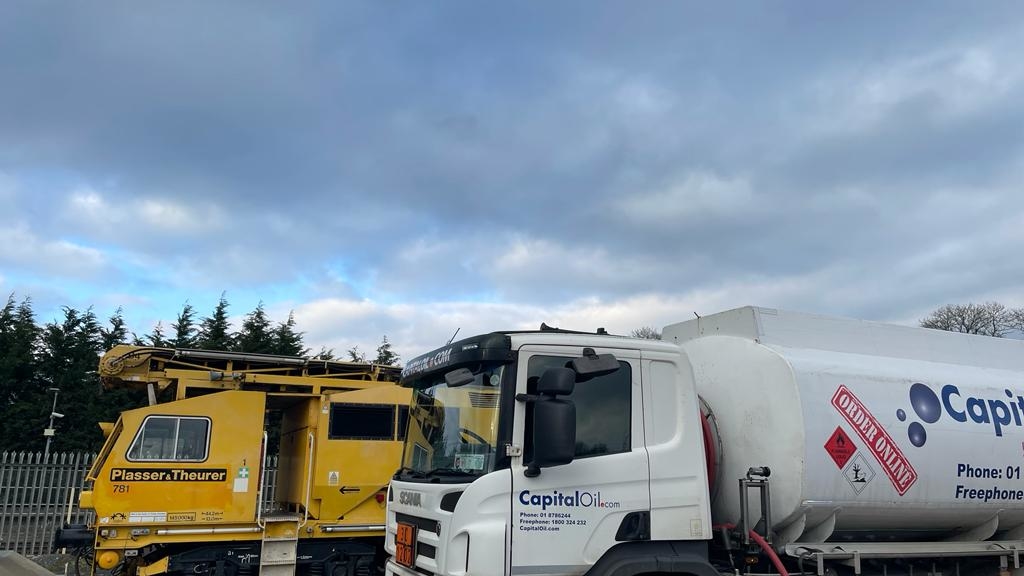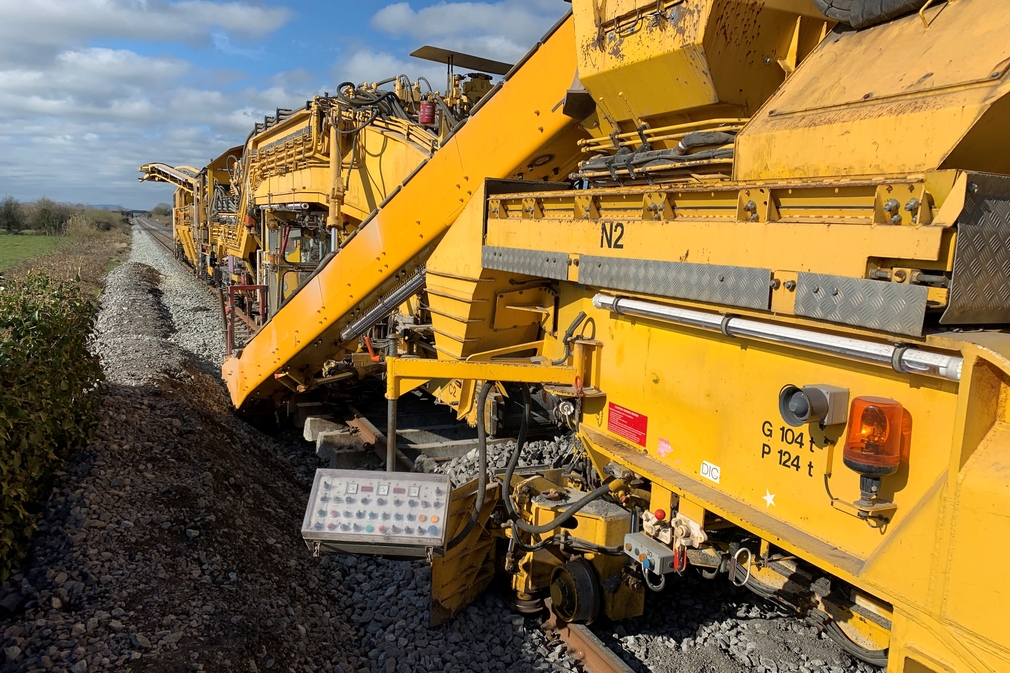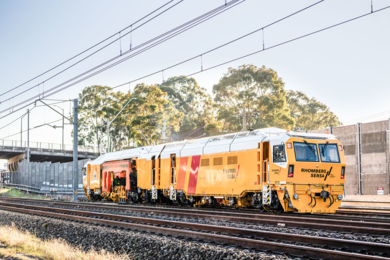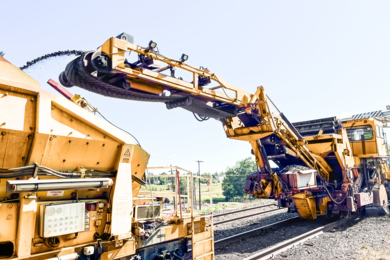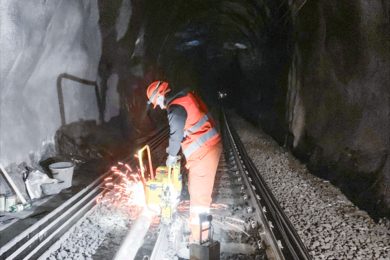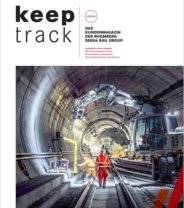Hyrdrotreated Vegetable Oil (HVO) is introduced on the Irish network to reduce the carbon footprint of the OTM fleet.
A lighthouse project by Rhomberg Sersa Ireland will result in the phasing out of green diesel on the OTM fleet and its replacement with hydrotreated vegetable oil (HVO).
The project will reduce the overall CO2 emissions on the Irish Rail / Iarnród Éireann (IÉ) OTM fleet, helping to achieve the environmental objectives of both RSRG and IÉ.
The engineering change, led by Derek Clare, began with an assessment of fuel use in 2022 across the fleet. The fuel data showed that three OTMs – the ballast cleaner and two specific tampers – consumed 45% of the total fuel used by the machine fleet. The three machines also operate the same engine type, therefore allowing for more rapid testing.
The HVO can be mixed in the same tank as the traditional green diesel with no adverse effects. Earlier this year an initial trial was carried out on the ballast cleaner, 781, which saw the introduction of the biofuel totaling just 25% of the tank's capacity. The amount was increased in managed stages so that it could be monitored and controlled by the maintenance department. This was also to ensure no damage was caused to the engine.
At the time of writing, the data had proven that the trials on 781 had been successful. RSIE has started trials on OTM 751 and it is planned to then commence trials on OTM 744.
One of the cleanest fuels on the market, HVO is 100% waste vegetable oil that is put through a much more complex refining process, producing a superior, cleaner fuel that is 100% interchangeable with conventional diesel.
HVO fuel is typically more expensive than petrodiesel or fossil diesel alternatives due to limited availability and limited distribution networks. However, any difference in costings is far outweighed by the enormous reduction in carbon emissions.
The fuel changes on the 3 machines will lead to a reduction of CO 2 emissions of approximately 150tonnes annually.
